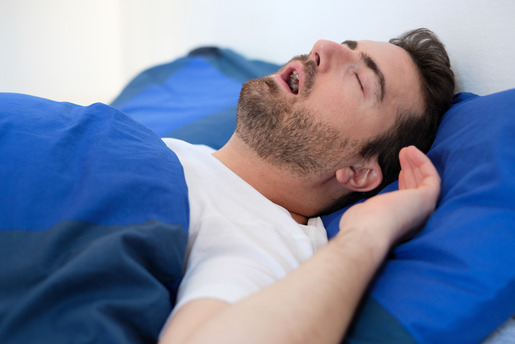
Millions of people struggle with sleep apnea every night, losing precious hours of rest. In fact, studies estimate that up to 30% of Americans have difficulty falling or staying asleep. However, those with rheumatoid arthritis (RA) face an even greater risk of sleep disturbances. Continue reading to learn more about the link between these conditions and how to improve your sleep quality.
How Rheumatoid Arthritis Affects Sleep
Research suggests a strong connection between rheumatoid arthritis and sleep apnea, making it even more important for patients with RA to be proactive about their sleep health. To understand this link, it’s essential to examine how each condition impacts the body.
RA is an autoimmune disease that triggers widespread inflammation, leading to joint stiffness, swelling, and pain. Meanwhile, obstructive sleep apnea (OSA) occurs when soft tissues in the throat collapse and block airflow during sleep, causing repeated pauses in breathing.
Studies show that people with RA are significantly more likely to develop OSA than those without the condition. One study even found that RA patients had a 75% higher risk of sleep apnea. While the exact reason for this link is still being explored, there are a few key factors that may contribute:
- Inflammation – RA leads to an increase in inflammatory substances in the body, which may interfere with normal sleep regulation.
- Obesity – Weight gain is common in both RA and sleep apnea patients, and obesity is a known risk factor for worsening both conditions.
- Joint & Tissue Damage – Over time, RA can cause erosion in the bones and joints, including the jaw. This may narrow the airway or contribute to temporomandibular joint (TMJ) issues, both of which can increase the likelihood of sleep apnea.
Managing RA and Sleep Apnea
Think you have sleep apnea? First things first, you should seek a professional diagnosis through a sleep study. This noninvasive test will help determine the cause of your sleep disturbances and guide your treatment plan. Some common treatments for sleep apnea include CPAP machines or oral appliances that help keep the airway open throughout the night.
Although there is no cure for rheumatoid arthritis, it can be managed through a combination of medications, physical therapy, and lifestyle adjustments. By effectively controlling RA symptoms, you may also reduce the severity of sleep apnea.
While RA and sleep apnea often occur together, they don’t have to control your life. With proper management, you can improve both your overall health and the quality of your sleep.
About the Author
With over 30 years of experience under her belt, Dr. West is passionate about providing expert care. She has completed thousands of hours of advanced training in specialized areas such as sleep apnea therapy and neuromuscular/craniofacial pain. If you’re experiencing persistent fatigue or difficulty sleeping, contact her today to explore treatment options. You can make an appointment via her website or call (702) 602-2000.
